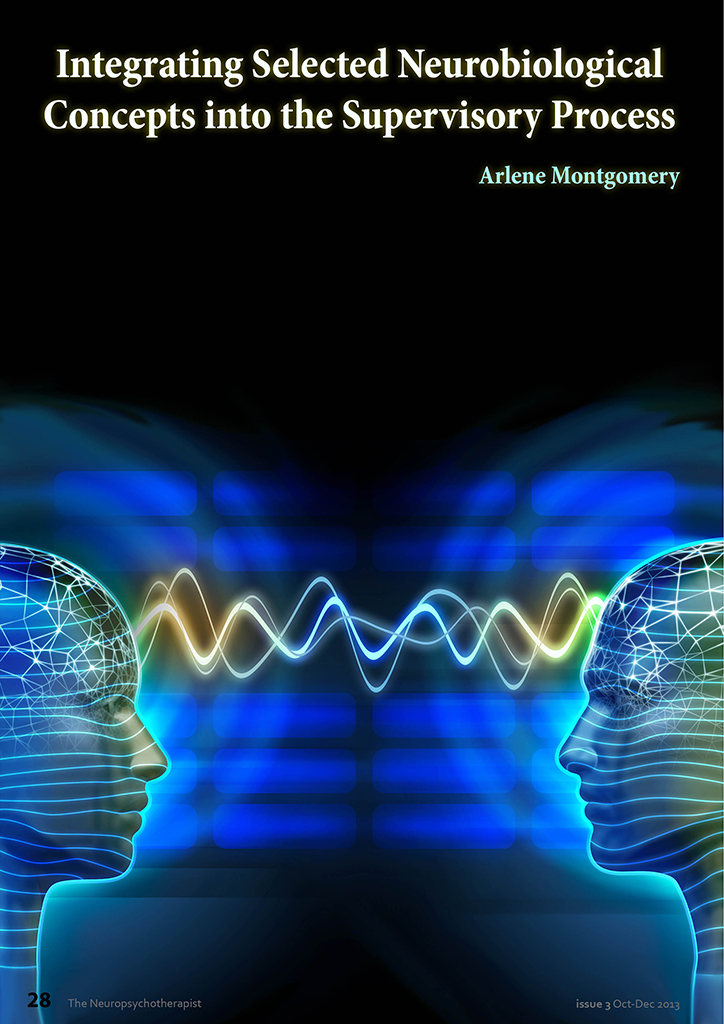Integrating Selected Neurobiological Concepts into the Supervisory Process
Arlene Montgomery

In preceding chapters of Arlene Montgomery’s Neurobiology Essentials for Clinicians (Montgomery, 2013), selected foundational concepts were described and illustrated with case material. These concepts include the functions of certain parts of the brain that affect physiological arousal (bodily and affective); the significance of understanding adaptive and maladaptive ways a person’s brain manages arousal or the lack thereof, using the concept of defense mechanisms; and ways the interactions between the brains of two or more persons are biologically programmed to perceive threat and how that capacity might develop into adaptive or maladaptive coping responses. Here, in this final chapter, Montgomery has a focus on two defense mechanisms—projective identification and dissociation—as a way to explore how the transfer of affect and other experiences may occur, both in the clinical encounter (in this case, between the supervisee intern and the client) as well as in the supervision process (between the supervisee and the supervisor)…
Unable to download? You are probably not logged in.
Click on Members Login to have access to all the web content and magazine.
Not a member? Click on Subscription to find out more.




